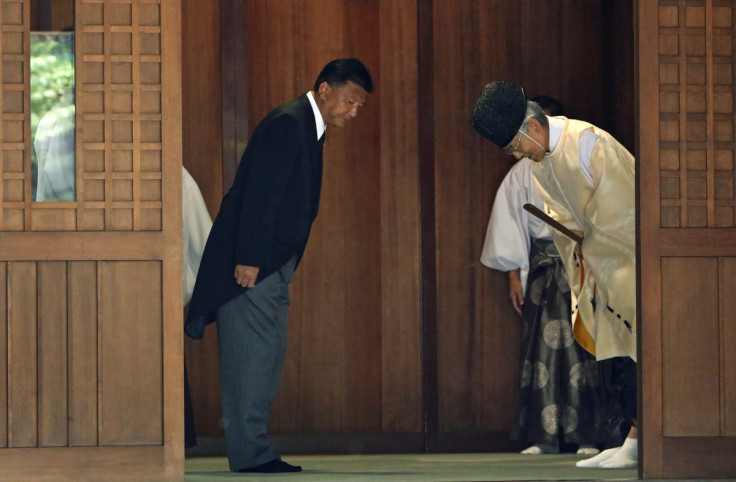China Fury as Japanese Politician Visits Tokyo War Shrine

Japan's Internal Affairs and Communications Minister Yoshitaka Shindo has paid another visit to a controversial Tokyo war memorial – angering China and South Korea, who both suffered from Japanese brutality during the second world war.
Built by Emperor Meiji in 1869, Yasukuni Shrine – which means "peaceful country" - commemorates the 2.5 million Japanese who have died in the name of their country, including those who died in wartime. At the shrine's centre are the names of 14 convicted "class A" war criminals, including Prime Minister General Hideki Tojo, who led the country from its attack on Pearl Harbour until its surrender after Hiroshima. Tojo was executed as a war criminal in 1948.
However, Yasukuni Shrine is particularly controversial because it is not simply a place of remembrance. In accordance with the country's Shinto religion the souls of the dead – "Kami" – are worshipped as deities by the hundreds of thousands of people who visit each year.
On 26 December 2013 Japan's Prime Minister Shinzo Abe visited the shrine to commemorate his first year in office. Even the United States, which is normally reluctant to criticise its close ally, said it was "disappointed" by Abe's visit. Abe and US President Obama are due to meet in Tokyo later this month but Abe is yet to meet his counterparts from either China or South Korea.
I did it as a private matter which I am free to decide
The Japanese government says each minister is free to decide whether to visit the shrine and 56-year-old Shindo – grandson of Gen Tadamichi Kuribayashi, whose resistance to US forces was depicted in Clint Eastwood's 2006 film Letters From Iwo Jima - defended his right to pay his respects to the dead: "I did it as a private matter which I am free to decide."
Shindo is no stranger to controversy, having played a key role in promoting Japanese sovereignty of Liancourt Rocks, which lie between Japan and South Korea. South Korea's Foreign Ministry in Seoul said Shindo's visit to the shrine was an act that directly challenged neighbouring countries that had suffered the aggression of Japanese imperialism.
China bore the brunt of Japanese brutality before and during the seond world war – including the infamous 1937 "Rape of Nanking" in which up to 300,000 of the city's 600,000 inhabitants and Chinese troops were butchered. China's foreign ministry said Shindo's visit to the shrine showed he had the "wrong attitude" regarding his country's history:
"China has already lodged solemn representations and protest with Japan. We urge Japan to adopt a correct attitude on questions of history, earnestly face the calls for justice from its Asian neighbours and the international community, and end all provocative acts which run counter to the tide of the times."
© Copyright IBTimes 2025. All rights reserved.




















